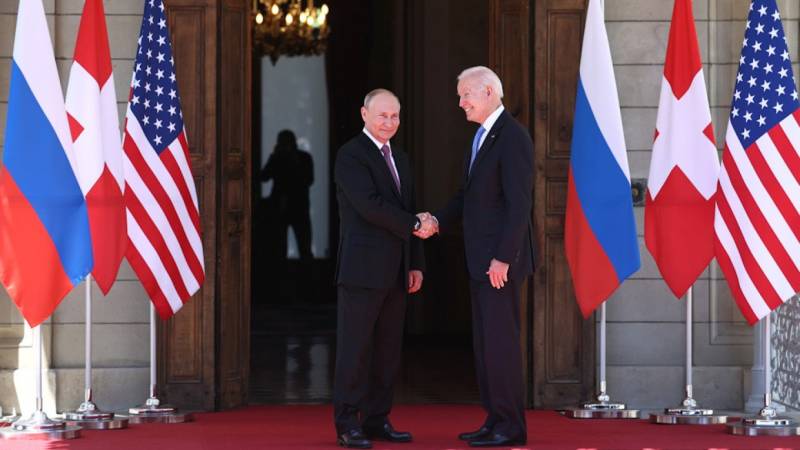US, Russia meet as ties strained over arms, cyberattacks

Stay tuned with 24 News HD Android App

The United States and Russia were holding a fresh round of talks in Geneva on Wednesday aimed at stabilising the thorny relationship between them.
The talks are a continuation of the strategic dialogue which started last month in the Swiss city with the first summit between Russian President Vladimir Putin and US President Joe Biden.
The meeting is taking place behind closed doors and with no media present.
The talks, being led by US Deputy Secretary of State Wendy Sherman and Russian Deputy Foreign Minister Sergei Ryabkov, are expected to last most of the day.
The US mission in Geneva posted two pictures of Sherman meeting Ryabkov. They were both standing indoors in front of their respective flags and wearing face masks. In one of the pictures, they are touching elbows.
Moscow and Washington have both toned down expectations, with no spectacular results expected from the meeting -- just as with the June 16 presidential summit.
The talks will cover the thorny issue of arms control. Bonnie Jenkins, who one week ago was confirmed as the under secretary of state for arms control and international security affairs, is part of the US delegation.
"Through this dialogue, we seek to lay the groundwork for future arms control and risk reduction measures," the State Department said when announcing Wednesday's Geneva talks.
Ryabkov told Russian news agencies on Tuesday that the talks would allow Moscow to "understand how serious the mindset of our US colleagues is in terms of establishing a concentrated, energetic dialogue in strategic stability".
But he added: "I would not raise the bar of expectations."
Strained ties
The diplomacy comes amid tensions on multiple fronts between the two nations, with Washington blaming Moscow for a wave of cyberattacks, for which Russia denies any responsibility.
Biden on Tuesday accused Putin of seeking to disrupt the 2022 US congressional elections by spreading "misinformation".
"It's a pure violation of our sovereignty," he said.
Putin has "a real problem: he is sitting on top of an economy that has nuclear weapons and nothing else," Biden added. "He knows he is in real trouble, which makes him even more dangerous."
Putin has nonetheless welcomed Biden's efforts to bring more predictability to the relationship between the two global powerhouses.
During their Geneva summit last month, the two presidents, who hold the world's largest nuclear arsenals, shook hands, spoke for more than three hours, and stressed the importance of dialogue.
Andrey Baklitskiy, a senior research fellow at the Centre for Advanced American Studies at the Moscow State Institute of International Relations elite university, said the announcement of any working groups would give a steer as to where the negotiations are heading.
"What we could get from this meeting is that general understanding of what things concern each party; how those interact," he told reporters in Geneva via video-link.
"If we hear... that consultations went well, we might guess that at least the parties perceive each other as ready for business.
"It seems that you can have business with the Biden administration. If they agree to something, at least they will try to follow through."
Baklitskiy said the announcement of when the next meeting might be could make a "considerable difference", given the US domestic elections schedule.
